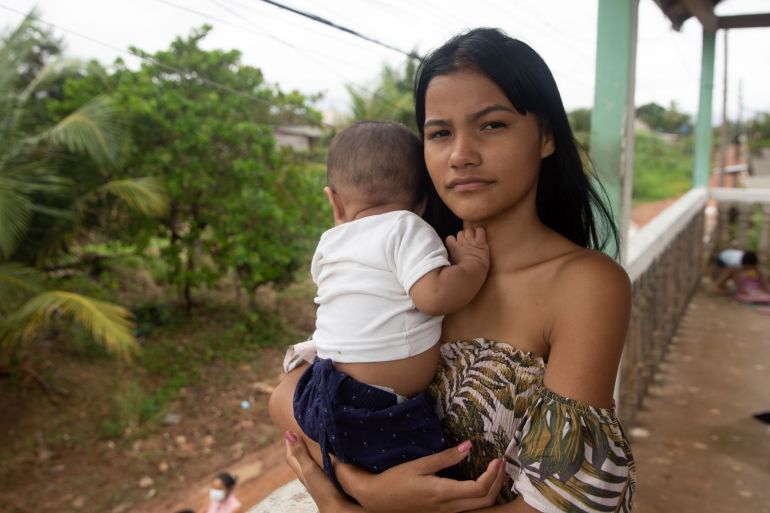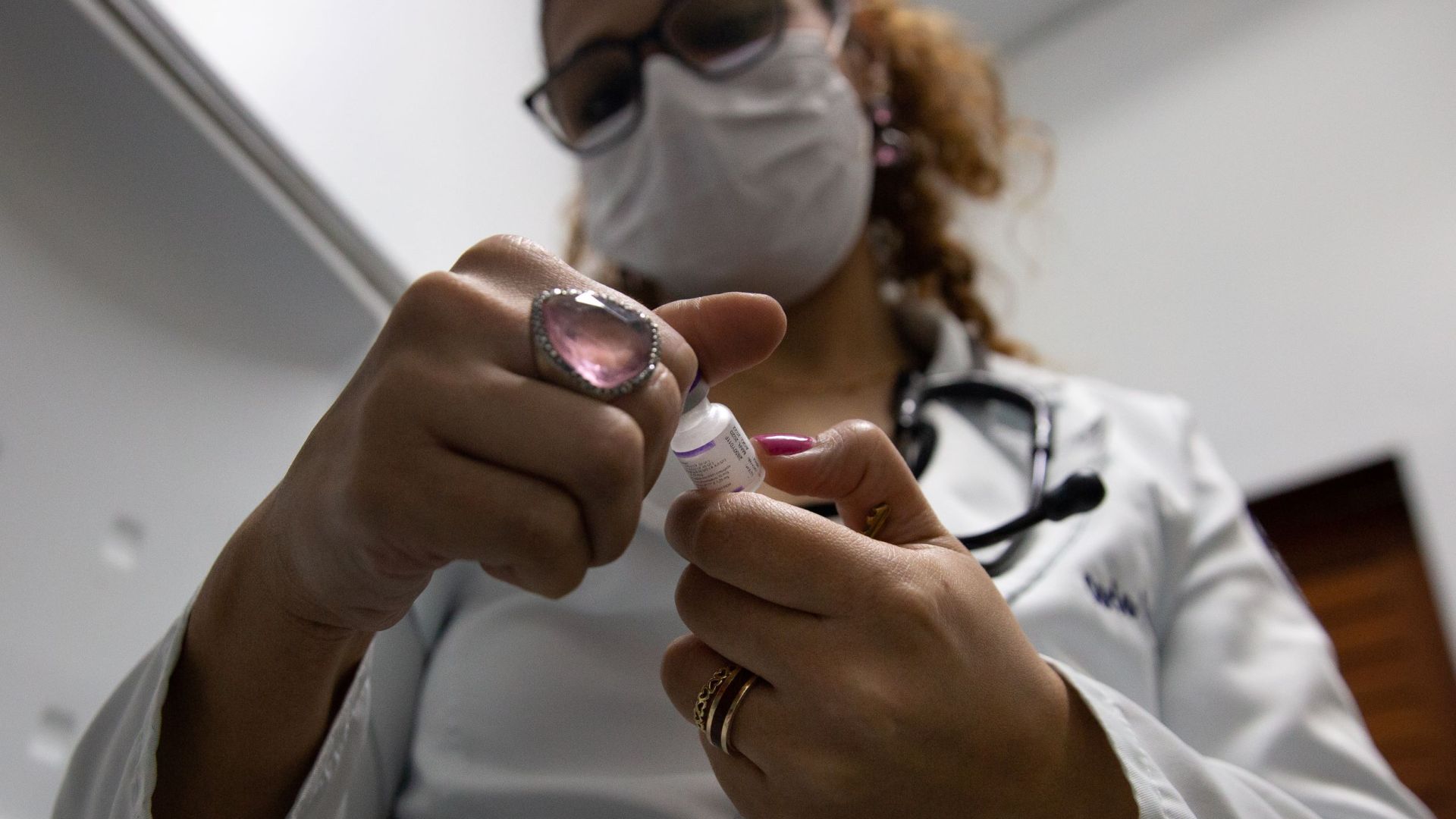'It's only a matter of time'
Brazil once wiped away preventable diseases. Why are they coming back?
This reporting was supported by the International Women’s Media Foundation.
Santana, Brazil - When Pamela Serrao’s six-month-old baby Arthur broke out in bright red hives, the last thing on her mind was the measles.
That’s because their rural northern Brazilian town, like much of the Americas, had officially wiped out the disease. In Brazil, that 2016 milestone was the product of a world-renowned government vaccination programme stretching back decades.
Yet, six years later, the country is one of many across the world seeing a resurgence of such preventable diseases.
Serrao’s Amazonian state of Amapa now has become the epicentre of measles outbreaks in the South American country - outbreaks that local health authorities are struggling to control amid insufficient health resources, turmoil in President Jair Bolsonaro’s government and anti-vax sentiments spurred on by coronavirus disinformation.
Late into that terrifying night in March, Serrao and her mother cradled the feverish baby, hoping to calm him down or get him to eat.
Serrao, 15, had no memories of the outbreaks of measles, diphtheria, and polio of decades past, and she frantically wondered what could be ailing the infant when her mother remembered her own measles infection as a child.
“I knew what measles was,” Serrao recalls. “But I never imagined that it would enter the house, because we hadn't heard about it for so long. We end up forgetting about these diseases.”

They rushed Arthur to a hospital a few hours away, worried that the virus could cause his throat to close up. “It’s something that needs to be treated or else he could die,” she remembers thinking. “I felt so desperate about his throat, thinking ‘My God, if we don’t take care of him, the hospital here doesn’t have mechanical ventilators.’”
Across the world, childhood immunisations have significantly dipped during the COVID-19 pandemic.
In 2020 alone, the global health crisis left at least 23 million children worldwide unvaccinated, according to World Health Organization figures. And in Latin America and the Caribbean, one in four children has been exposed to a disease that can be prevented by vaccination.
It’s a backslide that health experts say could take decades to undo.
"The decline in vaccination rates in the region is alarming and puts millions of children and adolescents at risk of dangerous diseases that could be prevented," Jean Gough, UNICEF's regional director for Latin America and the Caribbean, said in a statement.
Gough said the solution lies in a strong vaccination programme, yet in Brazil, that may be easier said than done.
